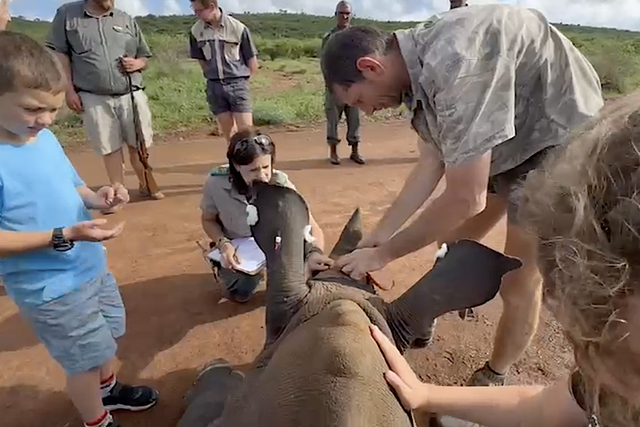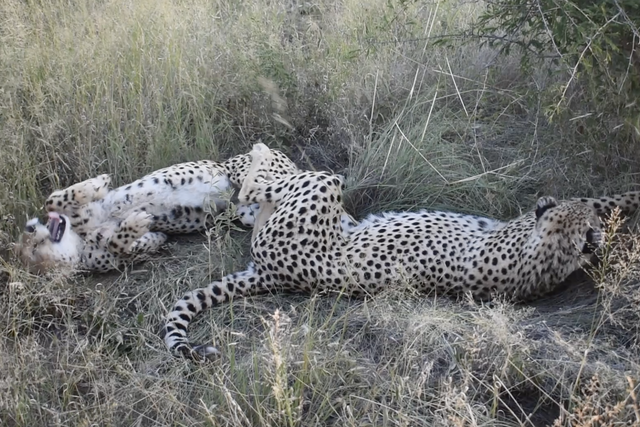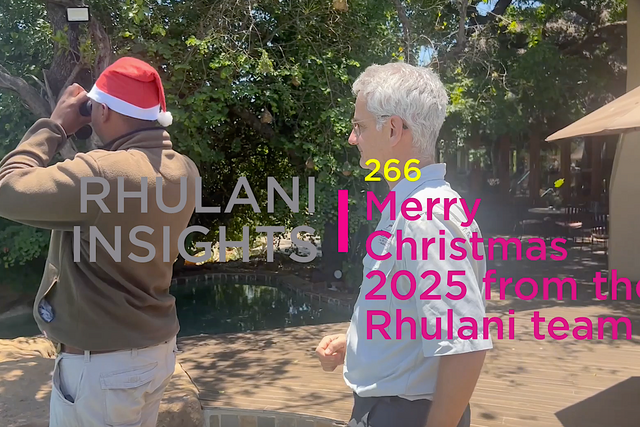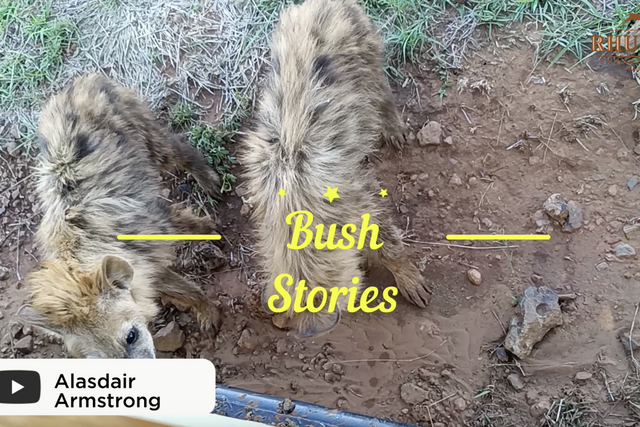A little more than two weeks ago, nine small wild dogs were born in Madikwe. A short, touching encounter with the animal that has become the symbol of the reserve.
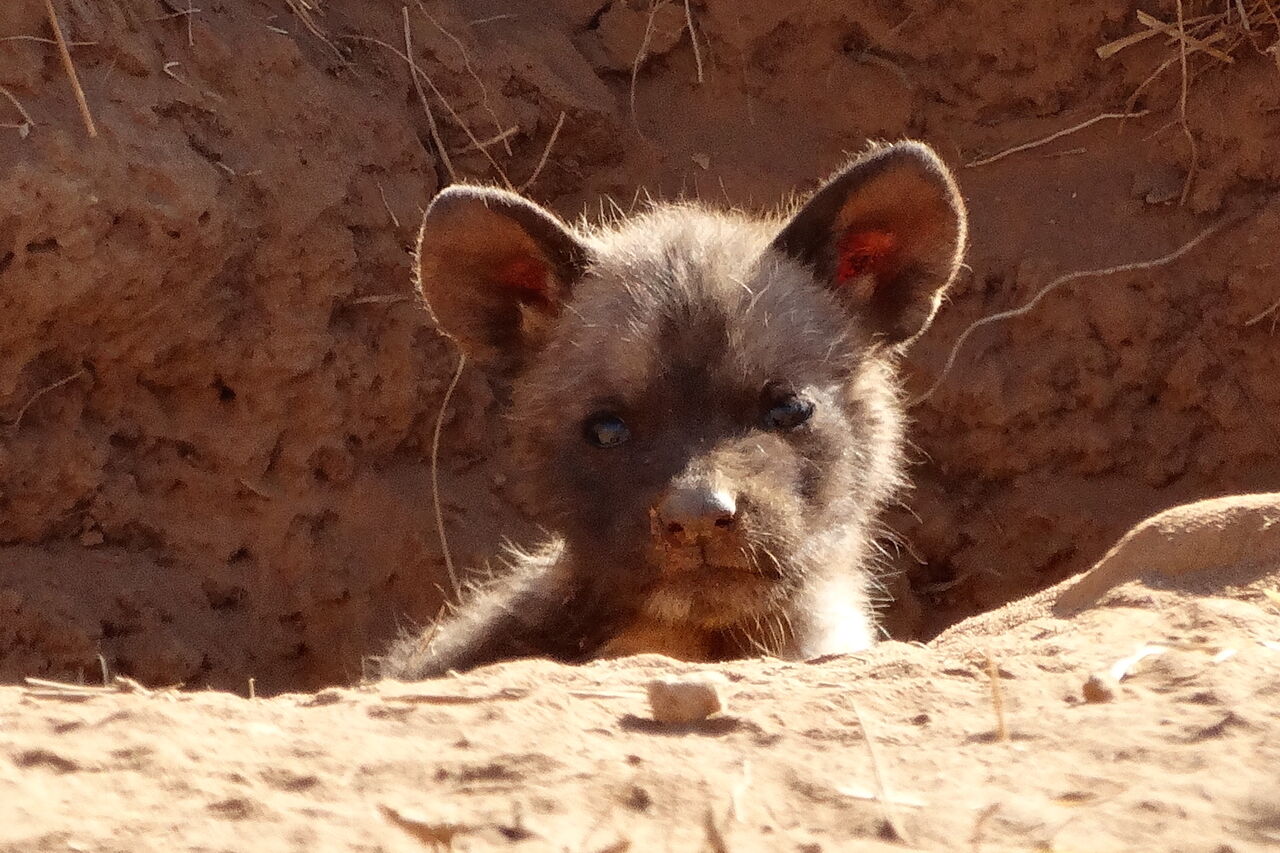
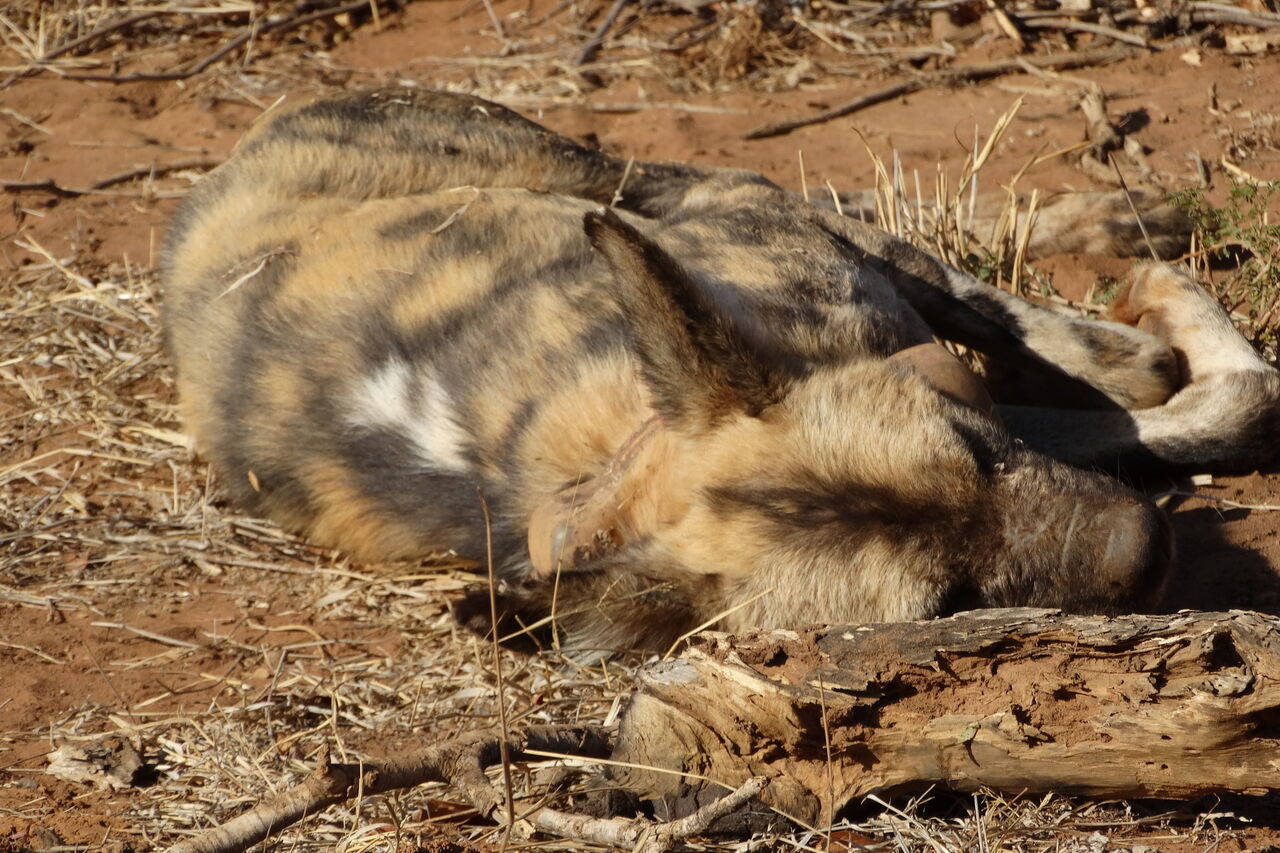
The sun is high in the sky. No wind, no shadow. We are surrounded by the silence which you only feel here, in the wild nature. To our left is a male wild dog, peacefully sleeping. To our right, something like a foxhole, probably an old refuge of an aardwolf. "Time for a coffee," says our ranger Sean quietly. From the driver’s seat, carefully he climbs past us to the seats in the back row, to interrupt this idyll as little as possible, and not to wake up the sleeping animal.
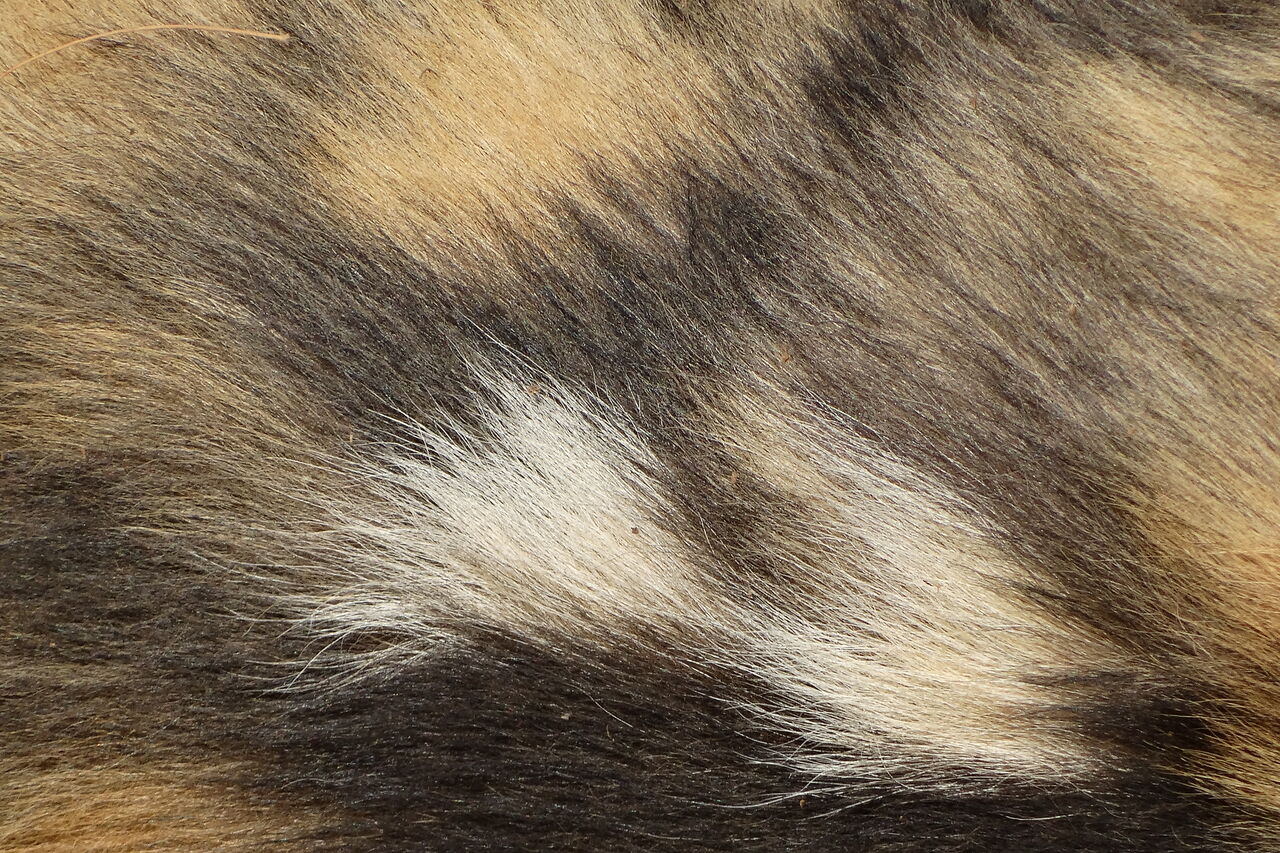
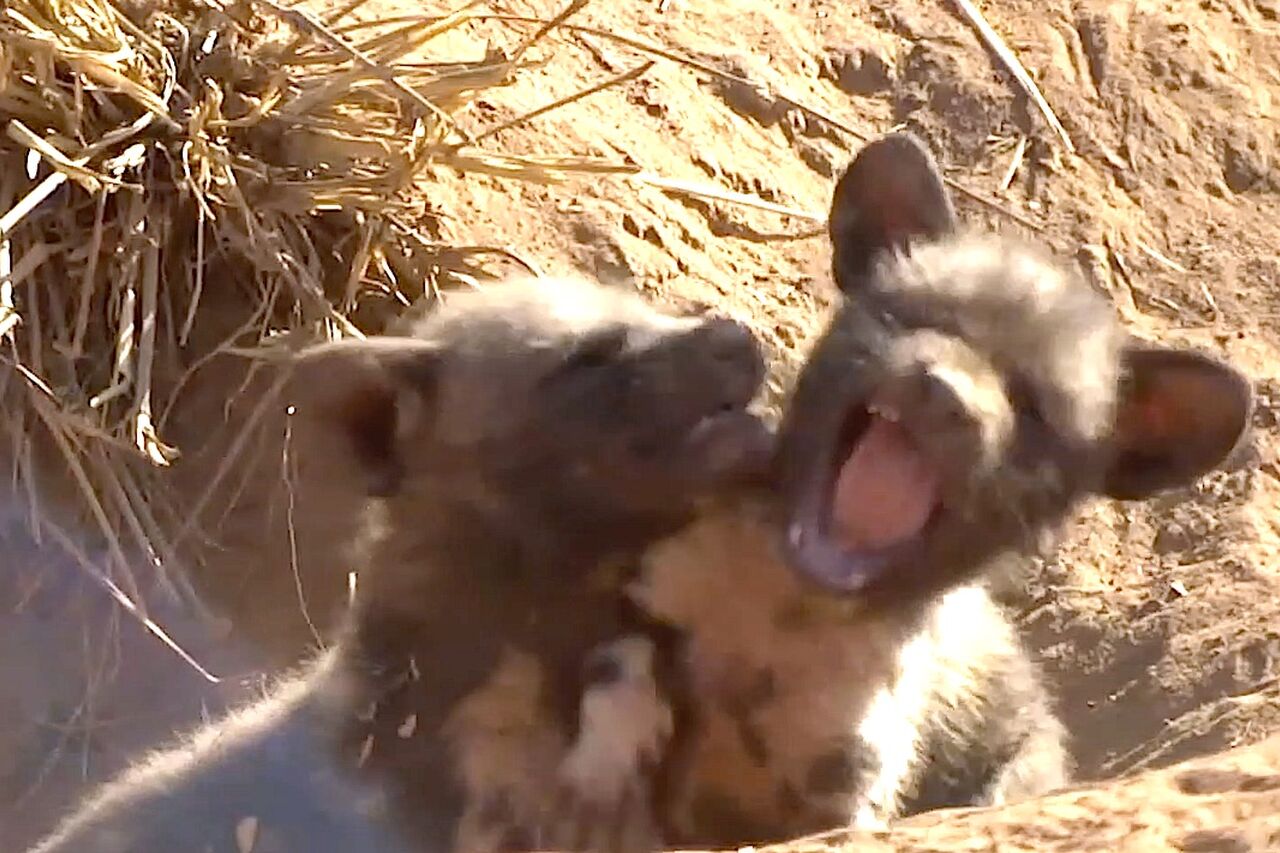
"The wild dog is not sleeping. Look how he moves his ears attentively to follow exactly what we are doing," says Sean, while he grabs a box under the seat. He takes out cups, spoons, and a thermos. "This is an adult, male wild dog. He stands guard, while the other three adults of the pack set out to hunt early this morning". Now we know why we established ourselves here. It was about two weeks ago, when one of the female wild dogs gave birth. The little ones are well protected in the den.
“If we are lucky, we will get to see them," says Sean while he puts coffee powder into the cups and pours water. We stare curiously to the den hoping to at least get a little glimpse of the puppies of this special animal. A bit more than a decade ago, the wild dog was one of the most endangered species in Africa. At that time, Madikwe became famous with the formation of a new wild dog population. Now, Madikwe offers a wide diversity and natural beauty to visitors, but still this 75,000-hectare reserve retains its reputation as "home of the wild dogs". So, it is worth to wait here in the blazing sun.
Sean hands us the coffee mugs over. Suddenly, we believe that we hear a faint rustling from the hole. Or maybe not? The male guard shows no reaction. Sean tells us: "The situation of the wild dogs is far from stable. This recent birth gives us new hope". He goes on to explain that just a year ago, the same female had given birth already. But after a fatal battle with hyenas all puppies were killed. Shortly thereafter, one of the two wild dog packs of Madikwe got infected with rabies, and only a few dogs remained, others are recovering in a boma. Despite sadness we hear optimism from Sean's words: "This time it's a total of nine pups. That's a lot! The likelihood that a few of them will survive is high ".
Patiently we sip our coffee. Other Madikwe guests have already given up and make their way back to the lodge. Now, we are alone. Most probably, nothing more will happen, we think. "The adults are likely to come back in only two to three hours," Sean says. He grabs all things from our coffee break together.
All of a sudden, two small, curious and dark eyes stare at us from the den. And soon after, two small wild dogs gently bounce out for a brief rendezvous with the charming and dangerous environment of Madikwe. We are quiet as a mouse and are deeply touched by the one-minute spectacle. The environment is safe, and the guardian grants the young this short trip, which is much more than just a funny romp of two small animals. It is a fascinating sign of the strength of nature with which it is able to repeatedly renew itself, and give hope.
This time it's a total of nine pups. The likelihood that a few of them will survive is high.Sean Townsend, Field Guide
When the adult wild dogs will be back from the hunt, the mother will feed the hungry puppies with milk, and the other adults will regurgitate food for the male guard. The milk withdrawal for the young will begin in about two months, and a bit later they will leave the den. Pups old enough to eat solid food are then given first priority at kills, eating even before the dominant pair; subordinate adult dogs help feed and protect the pups. From the sixth month, the cubs will start to be part of collective hunting, and the pack will return to its normal life. Fingers crossed…
Sean starts the engine and slowly we head back to Rhulani for a late breakfast. We all have a smile on our face. Even if sounds a bit trite: nature is the greatest miracle.
